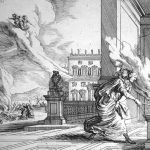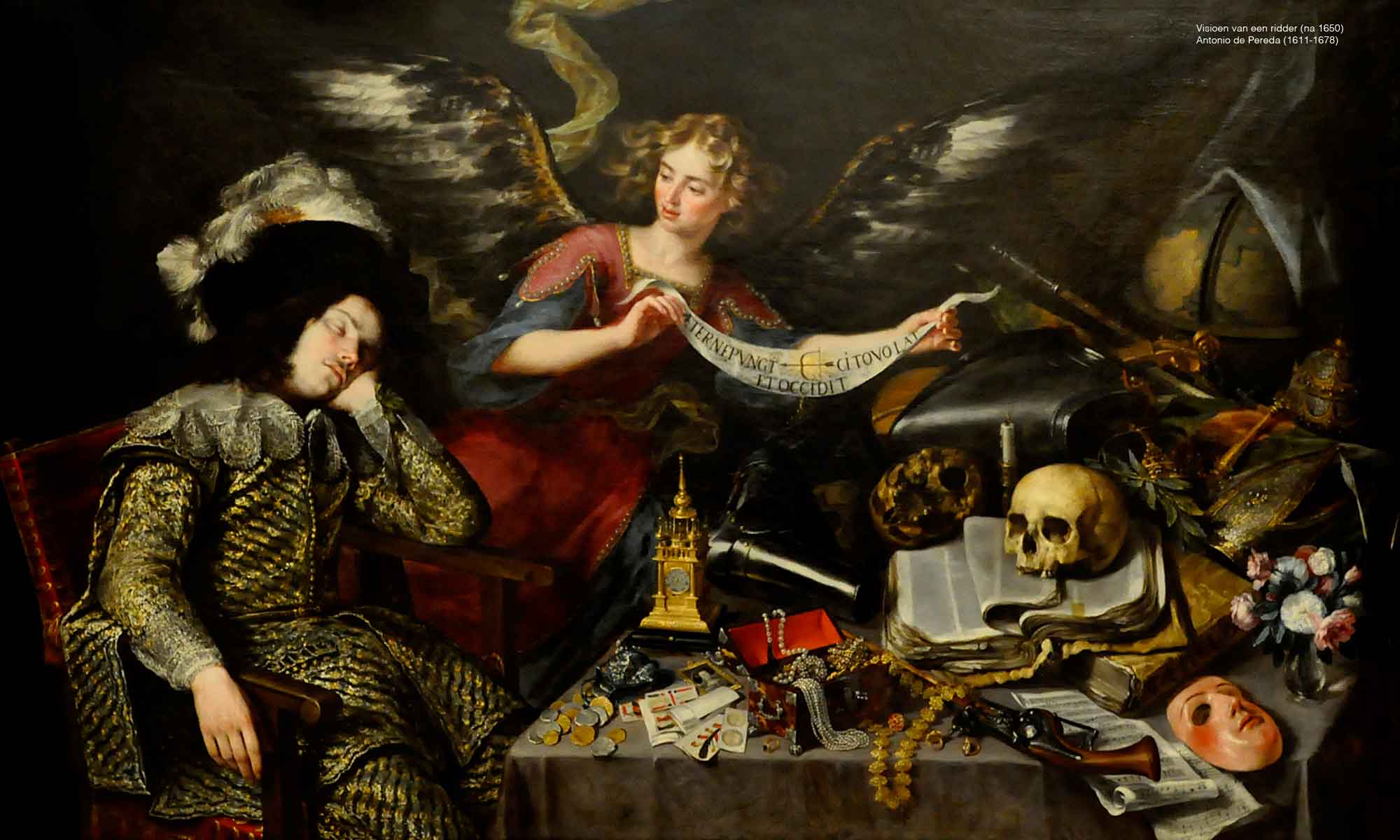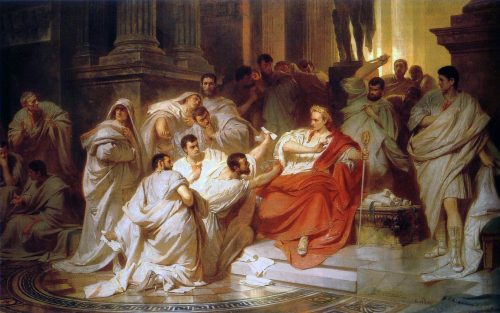 To be a king, one must give up sleep and dreams in favor of the ruling duties of waking life.
To be a king, one must give up sleep and dreams in favor of the ruling duties of waking life.
This is the grim truth that animates much of the action in Henry IV Part II. The second chapter of prince Hal’s transformation into King Henry V contains two of the most vivid references to sleep and dreaming in all of Shakespeare’s works. Hal’s father, King Henry IV, suffers from an agonizing inability to sleep, prompting him to exclaim the famous line, “Uneasy lies the head that wears a crown.” At the climax of the play, the newly crowned King Henry V publicly humiliates and cruelly disavows his old friend Sir John Falstaff, comparing him to a foolish dream—“but, being awaked, I do despise my dream.”
Below are all the references to sleep and dreams in the play, with brief comments. The play is currently in production at the Oregon Shakespeare Festival in Ashland, Oregon. The outstanding cast includes Jeffrey King as King Henry IV, Daniel Jose Molina as prince Hal, and G. Valmont Thomas as Falstaff.
I.ii.45
Falstaff: “Well, he may sleep in security; for he hath the horn of abundance, and the lightness of his wife shines through it…”
Sir John Falstaff is appearing here for the first time in the play, and he immediately becomes angry that a tailor will not accept his “security,” i.e. his pledge to pay his debts. Falstaff cannot provide the security the tailor demands, so instead the old rogue pivots to a different meaning of “security,” insulting the tailor by suggesting he’s a cuckold (with horns), unaware of his wife’s infidelity (lightness) while he sleeps in apparent safety and ease.

I.ii.111-113
Falstaff: “This apoplexy, as I take it, is a kind of lethargy, an’t please your lordship, a kind of sleeping in the blood, a whoreson tingling.”
The Chief Justice has just entered the scene, and he demands to speak with Sir John about his criminal behavior. Falstaff avoids the question by asking the Chief Justice about the health of the king, Henry IV, who is reportedly ill with “apoplexy.” The king has been losing his vitality and energy through a “kind of sleeping in the blood,” and Falstaff wants the Chief Justice to focus on what will happen when the king is dead—prince Hal, the good friend of Sir John, will ascend to the throne, and he will not look kindly on the mistreatment of his closest pals. Falstaff’s medical diagnosis of the king is a thinly-veiled threat against the Chief Justice.
I.ii.153-154
Chief Justice: “But since all is well, keep it so. Wake not a sleeping wolf.”
The Chief Justice does not press the point, but he gives Falstaff a warning of his own. The proverb suggests that a prudent person will recognize the benefit of allowing a violent beast to remain in peaceful slumber.
II.i.76-77
Hostess: “He hath eaten me out of house and home; he hath put all my substance into that fat belly of his. But I will have some of it out again, or I will ride thee o’nights like the mare.”
Falstaff: “I think I am as like to ride the mare, if I have any vantage of ground to get up.”
Mistress Quickly, the hostess of the tavern, complains to the Chief Justice about the money Falstaff owes her and refuses to pay. Having no other recourse, she threatens to harass the old rogue in his sleep like a nightmare. Sir John deflects her anger by transforming the nightmare curse into a bawdy invitation.

II.ii.86-88
Bardolph: “Away, you whoreson upright rabbit, away!”
Page: “Away, you rascally Althaea’s dream, away!”
Prince: “Instruct us, boy; what dream, boy?”
Page: “Marry, my lord, Althaea dreamt she was delivered of a firebrand; and therefore I call him her dream.”
Prince: “A crown’s worth of good interpretation. There ‘tis, boy.”
This scene starts with prince Hal and his disreputable companion Poins discussing the king’s illness, and Hal’s unwillingness to show his true feelings. Then Bardolph and the young Page arrive, two bumbling fools with a message from Falstaff. Poins makes fun of Bardolph’s red face (discolored from drink), and the Page reveals that Bardolph was recently with a prostitute. The furious Bardolph chases after the Page, who calls him “Althaea’s dream.” Prince Hal takes interest in this, and asks what the boy means. The Page responds by mistakenly combining two classic mythological tales. Althaea was an ancient Greek queen who killed her own son by burning a brand (piece of wood) that, so it was prophesied at his birth, would cause his death if ever consumed by fire. Hecuba was a Trojan queen who had a dream while pregnant that she gives birth to a firebrand; the child she bore from that pregnancy, her son Paris, was the impetuous warrior who abducted Helen, sparking the war that led to the destruction of their city. Several other Shakespearean plays make accurate references to the story of Hecuba, so it seems likely the Page’s conflation of the two stories is intentional and not a mistake of Shakespeare’s. Does prince Hal know or care if the Page’s mythology is accurate? Maybe not, but the prince does appreciate a fine display of wit. Hal plays along with the dream theme by offering the Page a small payment (the crown) for the pleasing interpretation, just as if he were consulting a diviner in the marketplace.
II.iv.200-201
Pistol: “What! Shall we have incision? Shall we imbrue? [Snatching up his sword.]
Then death rock me asleep, abridge my doleful days!”
The Ancient Pistol, one of the rowdy soldiers who hang around the tavern, gets in a drunken brawl with Falstaff. The notion of death as a kind of sleep is pervasive in Shakespeare, and in classical mythology.
II.iv.382-386
Falstaff: “Farewell, hostess. Farewell, Doll. You see, my good wenches, how men of merit are sought after. The undeserver may sleep when the man of action is called on. Farewell, good wenches.”
Sir John was just about to go to bed with his female companions, but he is suddenly informed that a dozen of the king’s men are waiting at the door for him. Falstaff realizes he can no longer escape the military service that a nobleman like himself must perform. He thus turns necessity into a virtue and presents himself to his lady friends as a man of extraordinary importance whose sage presence the king desires immediately. The moral contrast between he draws between a virtuous man of action like himself and a slothful “undeserver” is undercut by the fact that Falstaff was just about to retire for the evening, until forced by a troop of soldiers to do otherwise.
III.i.4-17, 26-31
King: “How many thousands of my poorest subjects
Are at this hour asleep! O sleep, O gentle sleep,
Nature’s soft nurse, how have I frightened thee,
That thou no more will weigh my eyelids down,
And steep my senses in forgetfulness?
Why rather, sleep, liest thou in smoky cribs,
Upon uneasy pallets stretching thee,
And hush’d with buzzing night-flies to thy slumber,
Than in the perfum’d chambers of the great,
Under the canopies of costly state,
And lull’d with sound of sweetest melody?
O thou dull god, why liest thou with the vile
In loathsome beds, and leav’st the kingly couch
A watch-case or a common ‘larum-bell?…
Canst thou, O partial sleep, give thy repose
To the wet sea-boy in an hour so rude;
And in the calmest and most stillest night,
With all appliances and means to boot,
Deny it to a king? Then, happy low, lie down!
Uneasy lies the head that wears a crown.”
The next scene occurs in the palace, where the aging king Henry IV appears “in his nightgown,” desperately desiring to sleep and yet unable to do so. Falstaff’s fantasy of the wakeful “man of action” is belied by the painful reality of mighty ruler who is strangely impotent in the domain of sleep. Alone with his insomnia, the king broods over the baffling irony of sleep bestowing its gifts to the lowliest of people in the worst of circumstances, and yet denying any comfort or rest to the greatest and most powerful man of all. These ruminations prompt the king to utter perhaps the most famous line in the play, an honest reckoning with the cost he has paid for the power he seized and hopes to pass on to his son.
IV.ii.37-42
Archbishop: “I sent your Grace
The parcels and particulars of our grief,
The which hath been scorn shov’d from the court,
Whereon this hydra son of war is born;
Whose dangerous eyes my well be charm’d asleep
With grant of our most just and right desires…”
The Archbishop and the other rebels against the king have met to negotiate with his son, prince John. The Archbishop diplomatically suggests that the monstrous violence of war, which once set loose can grow horribly out of control, may be “charm’d asleep” if the king will simply grant their legitimate grievances. The prince seems to agree. But it soon turns out he was in fact charming the Archbishop; as soon as the rebel troops are released, the prince seizes the Archbishop and other rebellion leaders and sends them to their execution.
IV.iv.65-68
King: “The blood weeps from my heart when I do shape,
In forms imaginary, th’unguided days
And rotten times that you shall look upon
When I am sleeping with my ancestors.”
On the verge of death, the king sadly anticipates the wasteful, unruly behavior of his son Hal, who will inherit the crown once the king is gone. Even when he is on the brink of succumbing to the eternal sleep of death, the king cannot help worrying about the world he will leave behind in the hands of his degenerate child.
IV.iv.135-138
Gloucester: “The people fear me, for they do observe
Unfathered heirs and loathly births of nature.
The seasons change their manners, as the year
Had found some months asleep and leaped them over.”
The ailing king’s closest allies gather in the palace and speak darkly about what will happen next. The Duke of Gloucester describes strange omens and worrisome changes in the weather that seem to foretell conflict ahead. Here is another metaphorical contrast between sleeping passivity and waking action.
IV.iv.20-21
Warwick: “Not so much noise, my lords. Sweet Prince, speak low;
The King your father is dispos’d to sleep.”
Now, at the very end of his reign and his life, sleep briefly returns to the king.
IV.iv.26-30, 39-42
Prince: “Why doth the crown lie there upon his pillow,
Being so troublesome a bedfellow?
O polish’d perturbation! Golden care!
That keep’st the ports of slumber open wide
To many a watchful night! Sleep with it now!…
My gracious lord! My father!
This sleep is sound indeed; this is a sleep
That from this golden rigol hath divorc’d
So many English kings.”
Prince Hal enters the bed chamber of his father, where the golden crown sits on a pillow next to the slumbering monarch. Hal is initially puzzled by this, since he knows the bitter impact of this band of metal on his father’s sleep. But then the prince thinks his father has slipped into an eternal sleep, and he resolves himself to honor his father’s noble death by taking up the crown and devoting his life to upholding their royal lineage.
IV.iv.73-74,
King: “Is he so hasty that he doth suppose
My sleep my death?…
For this the foolish overcareful fathers
Have broke their sleep with thoughts, their brains with care…”
After the prince leaves his father’s bed chamber, the king briefly awakens and worries that Hal has greedily snatched the crown before the king is even dead. This fear sets up their final deathbed reconciliation, and Hal pledges that once he becomes King it will be time “to show the incredulous world the noble change that I have purposed.” Reassured by his son’s promise to rule wisely and well, King Henry IV dies, and Hal becomes King Henry V.
V.v.52-56
Falstaff: “My king! My Jove! I speak to thee, my heart!”
Prince: “I know thee not, old man. Fall to thy prayers.
How ill white hairs become a fool and jester!
I have long dreamt of such a kind of man,
So surfeit-swelled, so old, and so profane;
But being awak’d, I do despise my dream.”
Falstaff assumes his greatest wish has come true—his criminal protégé, the young prince, has become the new king, and he will surely give Sir John total freedom and license to indulge his many, many appetites. This has been Falstaff’s plan and expectation since the beginning of Henry IV, Part I, and now at the end of Part II, he celebrates the rise of his “sweet boy” to the throne. But this turns out to be the moment when Falstaff’s wishes are not only dashed but utterly annihilated in five cold, cutting lines of verse. The newly crowned King repudiates everything having to do with Falstaff, using language that echoes a famous biblical warning against dreams in Psalm 73:20: “They are like a dream when one awakes, on awaking you despise their phantoms.” (RSV) This particular psalm asks God why He allows wicked people to prosper in the world, and the psalmist concludes that God will eventually cause them to fall into ruin and be swept away, just as wispy dreams disappear in the light of morning. The new king casts Falstaff in this biblical mold, and in so doing he both rejects Sir John and identifies himself as a traditional, righteous king who is a vigorous man of action, not a dreamer. Even though he admits that this man has been a long-time presence in his life, Henry V is now focused entirely on his duties to the future.
As the play ends, I cannot help asking: will the new king suffer the same deep psychological damage, the same painful alienation from his sleeping and dreaming self, that plagued the old king?








 In August of 1991 I joined a group of dream researchers from the U.S. and Western Europe on a journey to Golitsyno, a conference center just outside Moscow in the former Soviet Union, where we planned to meet several Soviet researchers for a gathering organized by Jungian analyst Robert Bosnak. Just hours after our plane landed in Moscow on August 19, the airport was suddenly shut down by the Red Army; a
In August of 1991 I joined a group of dream researchers from the U.S. and Western Europe on a journey to Golitsyno, a conference center just outside Moscow in the former Soviet Union, where we planned to meet several Soviet researchers for a gathering organized by Jungian analyst Robert Bosnak. Just hours after our plane landed in Moscow on August 19, the airport was suddenly shut down by the Red Army; a 



 Prophetic dreams of doom go unheeded in Shakespeare’s tragedy about violent political strife among the greatest leaders of ancient Rome.
Prophetic dreams of doom go unheeded in Shakespeare’s tragedy about violent political strife among the greatest leaders of ancient Rome.